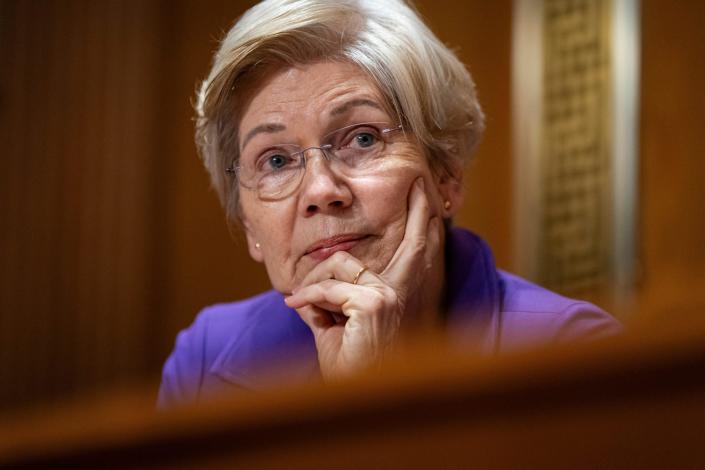
Proof of State is the Wednesday edition of Fortune Crypto where Leo Schwartz delivers insider insights on policy and regulation.
Crypto is a powerful force in Washington, there is no doubt. Sam Bankman-Fried may have turned on the spigot of cash to lobbyists and politicians, but his legacy has been continued by leaders from Brian Armstrong to Chris Dixon, who have become an active presence—and prodigious source of donations—in D.C. One crypto-powered super PAC, Fairshake, has raised around $80 million to deploy in this year’s elections.
The lingering question is whether voters will care. Coinbase, which filled the SBF-size hole in crypto advocacy in the wake of FTX’s collapse, often cites a poll it conducted with Morning Consult: 52 million Americans own crypto. Therefore, the company argues, 52 million people could cast the deciding vote in an election that pits a pro-crypto candidate against an anti-crypto candidate.
That's assuming, of course, that any of those 52 million people are swayed by their holdings. They could have $1 in Dogecoin, they could have lost $1,000 on TerraUSD, or they could have their entire life savings in a Trezor wallet—we don’t have granular insight. To counter that, Coinbase refers to a different figure: Nearly nine in 10 Americans believe the financial system needs changing. (I would be amused to find the odd one out who thinks we’re doing A-OK.)
Maybe there is a silent majority of voters incensed by the SEC’s interpretation of the Howey Test, and maybe there isn’t. This election cycle, the theory could finally be put to the test. Several races are pitting prominent anti-crypto voices in Congress against digital asset advocates, including Senate Banking Committee chair Sherrod Brown (D-Ohio), who is running against a former car dealer and blockchain evangelist named Bernie Moreno. The marquee contest, however, will be the crypto industry’s (second-)favorite villain, Elizabeth Warren (D-Mass.).
After some carefully placed speculation, crypto attorney John Deaton announced yesterday that he would be running against Warren in the otherwise sleepy race for her Senate seat. For those of you not on Crypto Twitter (X?), Deaton is a prolific presence, with over 300,000 followers on his main accountand another 130,000 for a news account run by his law firm. With his shaved head and bushy goatee, the former Marine gained a following through his advocacy for Ripple, becoming a leading voice for the notorious XRP Army.
His odds seem slim. As a disclosure, I was born and raised in Massachusetts. Warren may be from Oklahoma, but she made the Commonwealth of Massachusetts her home, becoming a permanent professor at Harvard in 1995. She earned a name for herself during the financial crisis, advocating for—and helping create—the Consumer Financial Protection Bureau. After Republican Scott Brown shocked the country by winning a special election for Ted Kennedy's long-held seat, Warren handily beat him in 2012. She won her 2018 race by 24 points.
Like Warren, Deaton is not from Massachusetts—he was raised in poverty in Detroit, as he details in his new memoir, Food Stamp Warrior. While he attended law school in Boston, he has not lived in Massachusetts since, instead setting up his law firm in nearby Rhode Island. Just two months ago, he first speculated on Twitter about buying a home in Massachusetts to challenge Warren, citing her opposition to crypto. Records show that he registered to vote as a Republican in Massachusetts less than a month ago.
If Deaton wants to create any grass-roots support in Massachusetts, it will surely be from crypto fans—the only community where he has any degree of name recognition. Yet in interviews announcing his run, he said he wants to focus on “kitchen table issues,” not cryptocurrency, according to the Boston Globe. A heavily produced ad announcing his run doesn’t even mention crypto.
Clearly, his entrance into the race got under Warren’s skin, who postedyesterday that the “MAGA Republican machine couldn’t find a single Republican in Massachusetts to run against me,” instead finding “someone from Rhode Island” with the backing of “special interest groups.”
Although Deaton responded that no one recruited him, he will almost certainly have the financial backing of Fairshake and other crypto donors. Whether he leans into his blockchain bona fides—or can find any voters in Massachusetts who are swayed by his crypto support—is another matter.
I'm heading to Boston to attend a Coinbase-hosted “State of Crypto” town halltomorrow, where Deaton’s candidacy will surely be the main topic of discussion. Say hello if you’re there as well.